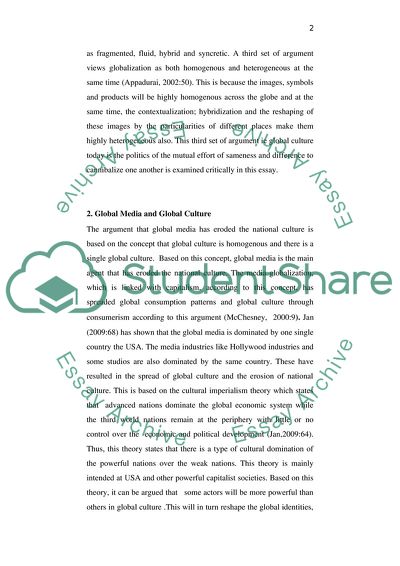Cite this document
(Moving Global Cultures Essay Example | Topics and Well Written Essays - 1750 words, n.d.)
Moving Global Cultures Essay Example | Topics and Well Written Essays - 1750 words. Retrieved from https://studentshare.org/culture/1755757-moving-global-cultures-the-central-feature-of-global-culture-today-is-the-mutual-effort-of-sameness-and-difference-to-cannibalize-one-another
Moving Global Cultures Essay Example | Topics and Well Written Essays - 1750 words. Retrieved from https://studentshare.org/culture/1755757-moving-global-cultures-the-central-feature-of-global-culture-today-is-the-mutual-effort-of-sameness-and-difference-to-cannibalize-one-another
(Moving Global Cultures Essay Example | Topics and Well Written Essays - 1750 Words)
Moving Global Cultures Essay Example | Topics and Well Written Essays - 1750 Words. https://studentshare.org/culture/1755757-moving-global-cultures-the-central-feature-of-global-culture-today-is-the-mutual-effort-of-sameness-and-difference-to-cannibalize-one-another.
Moving Global Cultures Essay Example | Topics and Well Written Essays - 1750 Words. https://studentshare.org/culture/1755757-moving-global-cultures-the-central-feature-of-global-culture-today-is-the-mutual-effort-of-sameness-and-difference-to-cannibalize-one-another.
“Moving Global Cultures Essay Example | Topics and Well Written Essays - 1750 Words”. https://studentshare.org/culture/1755757-moving-global-cultures-the-central-feature-of-global-culture-today-is-the-mutual-effort-of-sameness-and-difference-to-cannibalize-one-another.


